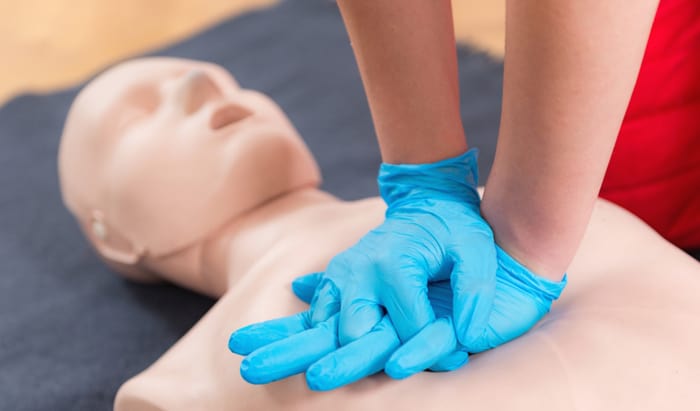The Royal College of Physicians and Surgeons of Glasgow has called on the NHS across the UK to adopt more stringent requirements for the use of personal protective equipment (PPE) following a review of the current guidance.
The call reflects growing concern across the healthcare sector for the wellbeing of healthcare professionals who are providing urgent medical treatment for patients with COVID-19. This updated guidance is directed at those carrying out work to resuscitate patients, when chest compressions produce excretions from a patient’s nose and mouth. Such fluids present an infection risk to those carrying out this procedure.
Specifically, the college now recommends that doctors or nurses who are required to carry out cardiopulmonary resuscitation and in particular cardiac compression should be equipped with the highest level of protection (Level Three PPE). This level of protection includes a respirator and visor.
Speaking as the college published it guidance, Dr Richard Hull, the College’s Honorary Secretary said:
“It’s clear from the recent statement from the Resuscitation Council (UK), that resuscitating patients. Cardiopulmonary resuscitation, and in particular cardiac compression, can produce excretions from a patient’s nose and mouth, and as such should be classed as an Aerosol Generated Procedure (AGP).
“These procedures require additional protection for those carrying them out in order to minimise the risk of infection. We therefore agree with the Resuscitation Council that Level 3 PPE, the highest level of protection, should be worn before chest compressions are undertaken by health care professionals at this time.
“Public Health England, Public Health Wales, Health Protection Scotland and the Public Health Agency (Northern Ireland) must update their official guidance urgently to ensure that those on the front line in fighting the COVID-19 pandemic are afforded the correct level of protection.
“Our key advice to our membership is that where risk of infection is high and the PPE with which you have been provided is inadequate, you must assess the risk to your own health. We will always respect and support your decisions in this regard.”
The College’s full guidance statement is below:
Position Statement of the use of Personal Protective Equipment (PPE) in Cardio-Pulmonary Resuscitation (CPR) in Patients with COVID-19 Disease
The COVID-19 Epidemic in the United Kingdom has put considerable strain on the National Health Service. The number of very sick people of all ages has increase over a short period of weeks. Many of these people will be in intensive care or high dependency units where the risk of Cardiac Arrest is high. However Cardiac Arrests may occur outside these areas.
The safety of NHS staff looking after these patients must be the highest priority. Proper and appropriate Personal Protective Equipment (PPE) is vital to give patients the best care but giving maximum safety to Health Care Staff.
Public Health England, Public Health Wales, Health Protection Scotland and the Public Health Agency (Northern Ireland) have issued advice on Personal Protective Equipment. Aerosol Generated Procedures (AGP) require the highest level of protection (Level Three PPE) including a respirator and visor.
The Resuscitation Council (United Kingdom) issues national advice on resuscitation. It has issued advice on Covid-19, CPR and Resuscitation. In its statement on 20 April the Council disagrees with the Public Health England view that chest compressions should not be a designated AGP.
“The clinical reality is that chest compressions produce excretions from a patient’s nose and mouth. As such, irrespective of whether this is via aerosol or droplet or both, this poses a demonstrable risk to Health Care Professionals (HCPs). Resuscitation Council UK (RCUK) COVID-19 guidance recognises this risk and designates that Level 3 PPE should be donned before chest compressions are undertaken by HCPs. We also advise that a defibrillator be employed at the earliest opportunity. This buys crucial time for patients and HCPs alike and provides the most appropriate balance of HCP safety and care for patients. “
The Royal College of Physicians and Surgeons of Glasgow fully agrees and supports the RC(UK) recommendations in the best interests of Health Care Professionals and patients.
Photo: / Shutterstock.com
- RV3-BB rotavirus vaccine at birth boosts microbiome - 8th May 2025
- No Mind Left Behind: Support the Carers - 4th May 2025
- Climate change causes longer pollen seasons in capital cities - 4th May 2025


